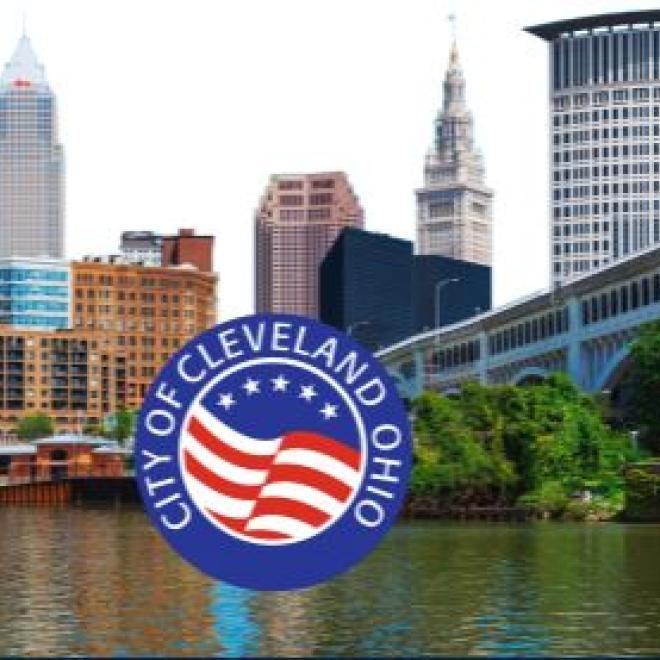
Mission
Our unwavering mission is to create a vibrant, inclusive community that embraces diversity and empowers all residents to thrive. Through our steadfast commitment to providing affordable housing, growth opportunities for businesses, high-quality employment, public amenities, civic engagement, public health, fair allocation of resources, and fostering community connections, we will continue to build a better tomorrow for all.

Vision
Our vision is to create a brighter and more sustainable future by building an innovative and efficient physical environment that harnesses the power of public and private resources. Through collaboration and joint efforts, we aim to inspire sustainable positive change that encourages continued equitable growth to ensure that all can participate in the City of Cleveland’s economy.

Purpose
Community Benefits Agreements (CBAs) are legally binding documents that allow residents to benefit from development projects. CBAs can provide economic opportunities for residents, leading to economic growth and mobility. To ensure transparency and accountability, a Community Benefits Ordinance (CBO) is crucial, as it regulates and monitors developments that use public funds.
Overview
The City of Cleveland has been utilizing Community Benefit Agreements (CBAs) for development projects for over a decade. Official legislation, the Community Benefits Ordinance (CBO), passed by the City Council in June of 2023, outlines a legal framework for how CBAs are applied, the process for how they are developed, and the kinds of benefits the City would like developers to prioritize. This ordinance also outlines expectations for publicly reporting contracting and workforce data. The CBO legislation went into effect officially in September of 2023.
The City of Cleveland recognizes its unique role in ensuring that development projects directly benefit the communities in which they are built and that public dollars benefit the entire community, including historically underrepresented minorities, women, and small businesses. A strong CBA can build and help impact our City in a myriad of other ways. An investment in time to discuss community benefits early in the project can create a more meaningful and impactful project for the community, the developer, and the City.

Impact of Community Benefits (September 2023-June 2025)
- 33 executed Community Benefits Agreements
- $959 million+ in total projected project investment
- $510 million+ in projected hard construction costs
- $156 million+ in projected City financial assistance
- $147 million+ in projected contracting opportunities for certified firms
These projections represent far more than dollar signs-they reflect the vision of a Cleveland where inclusive growth, shared prosperity, and meaningful partnerships drive city-building.
Types of Community Benefits Agreements
A Standard CBA is for all projects receiving $250,000 or more in City assistance and under $20 million in cost (including residential tax abatements for projects under $75 million in total cost); the CBO outlines a set of mandatory community benefits.
An Expanded CBA is for all projects receiving $250,000 or more in City assistance with a project cost of over $20 million (including residential tax abatement projects over $75 million in total cost). An Expanded CBA consists of the mandatory community benefits listed in the Standard CBA; it must also be coupled with additional community benefits to be considered for legislative approval. The CBO provides a great deal of flexibility in determining the appropriate additional community benefits related to the project. The CBO offers categories, suggested considerations of additional community benefits, and associated requirements that must be met.
Types of Projects
- Department of Economic Development - Commercial or mixed-use development projects (including Tax Increment Financing (TIFs))
- Department of Community Development - Residential development projects (including Tax Abatements)
Please contact the appropriate department before submitting your Community Benefits Plan to the Mayor's Office of Equal Opportunity (OEO). Adhering to this procedure will help ensure your submission is processed efficiently and eliminate additional unnecessary delays.
The Mayor's Office of Equal Opportunity does not control the timing of your project.
Once the Developer has been instructed to proceed with their project, please submit the Community Benefits Plan (CBP) to the Mayor’s Office of Equal Opportunity.
FAQs
A Community Benefits Agreement (CBA) provides a framework for developers and community representatives to work together constructively toward the common goal of creating better and more equitable development projects. By establishing clear and enforceable obligations, CBAs encourage transparency, accountability, and collaboration, helping to build trust and foster positive relationships between developers and communities. Through this process, CBAs can play a vital role in promoting shared prosperity and ensuring that development projects deliver meaningful benefits to the communities they serve.
- Developers - The Developers seeking support for a new project are always involved in the negotiation of and are a party to the CBA.
- Community Coalitions - Community coalitions are a necessary party to any CBA to ensure that the community itself is engaged in the negotiation of a CBA and will benefit from the development.
- City Administration - City administration can assert their inclusive leadership by (1) being transparent about the project; (2) insisting on gaining broad community support for project approval; and (3) actively encouraging CBA negotiations without any attempt to influence them.
The length of the community benefits agreement process is dependent upon effective and timely communication between all stakeholders, developers, and city administration. The City of Cleveland is committed to operating at the speed of business to ensure that all parties are progressing toward a final CBA closing date.
A CBA is required whenever a Developer is awarded a city financial incentive that equals $250,000 or more. For projects that have a total cost of 20 million or more are considered large projects are which required to have additional community benefits.
S.M.A.R.T. (or SMART) is an acronym used as a mnemonic device to establish criteria for effective goal-setting and objective development: Specific, Measurable, Achievable, Relevant, and Timely. This method is required because it helps the Administration understand the full scope of what the Developer proposes to eliminate ambiguity.
Blueprint CLE was developed as a strategic component of Cleveland’s Community Benefits Ordinance (CBO) Developers and contractors receiving city assistance are required to provide mentorship and other benefits under CBAs. Blueprint CLE fulfills the mentorship expectations outlined in these agreements.
This initiative is not just a professional development tool—it’s a direct connection to real contracts, visibility, and growth within the City’s economic ecosystem. Blueprint CLE is a 12-month structured mentorship program. It connects experienced developers, contractors, and business leaders (Mentors) with growth-oriented small businesses (Protégés).
Designed to build capacity, expand opportunity, and foster strategic collaboration, driven by real development activity in Cleveland. Blueprint CLE provides a clear path from subcontractor to prime contractor readiness and emphasizes long-term capacity-building—not just short-term engagement.
Learn more about Blueprint CLE.
To find a list of City of Cleveland certified vendors, visit the Certified Vendor Directory.
City of Cleveland Certification Qualifications
Required Documents
- Affidavit of Certification (New)
- Identification
- Federal tax returns
- Articles of Organization or Incorporation certificate copy
- NAICS Codes
Note - Other documents may be required depending upon the type of business and the business structure.
- Community:
- Job creation
- Local and diverse hiring and training commitments
- Living wage and other benefits
- Education partnerships between developers and community schools
- Support for local small businesses
- Improvements to open spaces, parks and playgrounds
- Affordable housing and rehabilitation
- Support for senior centers and child-care facilities
- State and/or local economic incentive packages
- Developer:
- Community support reduces risk for developers by fostering cooperation between government and community groups
- Developers get needed public subsidies and/or government approvals more reliably
- Community coalition agrees to support the project with public testimony and written statements
- Administration:
- Keep lines of communication open to ensure consistency with the city's policy goals
- Creates a fair and open process for establishing achievable targets within the community
- Creates transparency with community on development projects within the City of Cleveland
- Creates an opportunity to improve the local economy through dedicated job creation and small business utilization